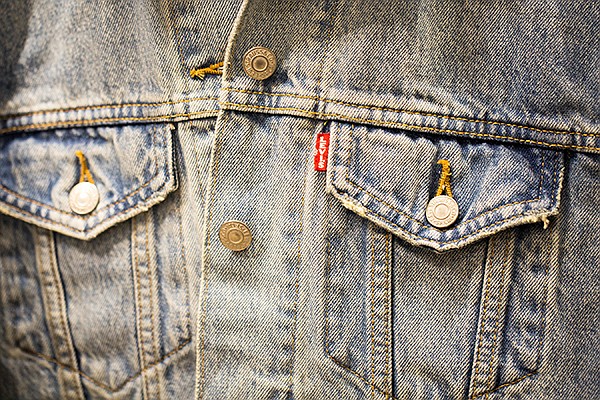MORE-SUSTAINABLE LS&CO.
Levi Strauss & Co Strengthens Chemical Screening
Levi Strauss & Co. has worked for more than 18 years to cut harmful chemicals from its manufacturing process. The San Francisco–headquartered denim manufacturer recently announced that it would work to guarantee higher levels of chemical testing and screening in its supply chain by using a new certification system.
On Nov. 19, it announced that LS & Co. would partner with Hohenstein, an international services provider and researcher for the textile industry, to place the certification system Eco Passport by OEKO-Tex in LS& Co.’s supply chain. The certification system will amplify Levi’s Screened Chemistry program. Eco Passport will help provide higher levels of testing, verification and transparency for chemical safety, said Michael Kobori, LS& Co.’s vice president of sustainability.
“Levi Strauss & Co. is committed to responsible chemicals management across our supply chain and our industry,” Kobori said in a statement. “This collaboration helps take our existing programs to the next level by establishing a new standard for responsible chemical stewardship that melds the hazard-based approach of Screened Chemistry with the robust testing and validation capabilities of Hohenstein.”
Eco Passport specifically analyzes whether each unique ingredient in a chemical product meets requirements of industry best practices and is not harmful to human health. It also offers on-site inspections that can validate the brand’s suppliers are using safer chemicals. The combined use of Eco Passport and Levi’s Screen Chemistry program will help LS& Co. meet a supply-chain goal. The company is a member of the group Joint Roadmap Toward Zero Discharge of Hazardous Chemicals. The group has the goal of zero discharge of hazardous chemicals by 2020.
Through its testing and on-site verification, Eco Passport will enable chemical suppliers to achieve higher levels of conformance with Zero Discharge of Hazardous Chemicals, an LS & Co. statement said.
LS& Co. has a history of trying to control harmful chemicals in its supply chain. In 2000, the company was one of the first to establish a Restricted Substances List, which identifies chemicals considered to be harmful to workers and the environment. This list includes barring certain dyes, coloring agents and biocides.
In November 2018, LS & Co. announced a climate-action policy that includes sourcing 100 percent renewable electricity, a 90 percent reduction in greenhouse gases at LS & Co. owned-and-operated facilities, and a 40 percent reduction in greenhouse-gas emissions in its supply chain. In the past, LS& Co. has published a Levi’s Sustainability Guidebook, which describes for vendors what the company is looking for in ecological guidelines.






















